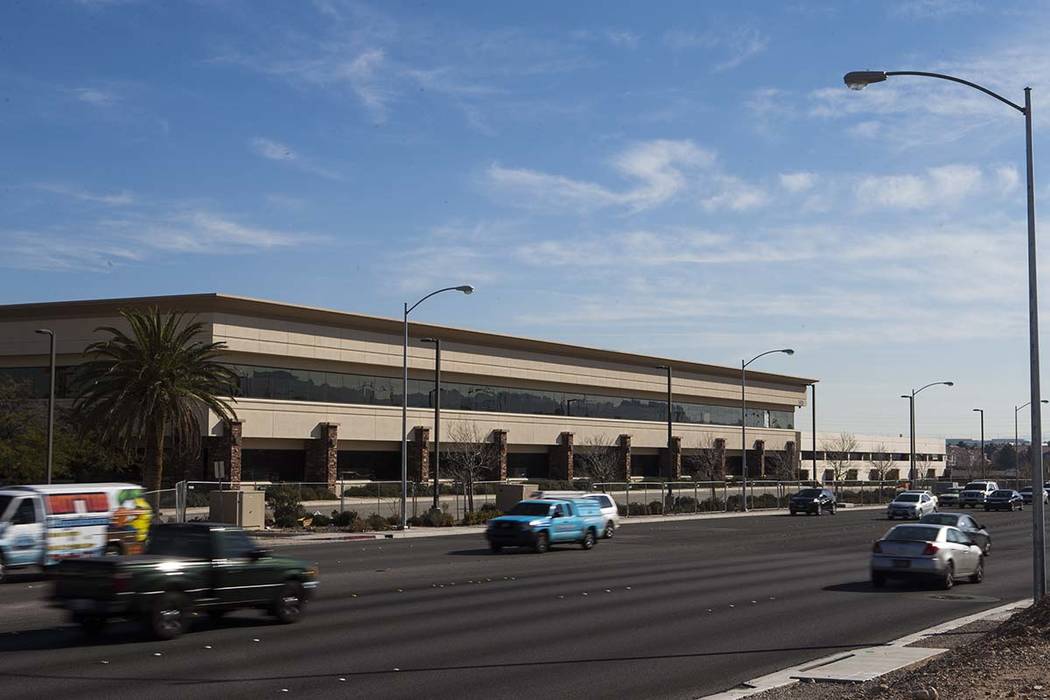Ex-Las Vegas businessman gets 50 years in $1.5B ‘Ponzi scheme’
A man who organized one of the largest financial crimes in U.S. history through his Las Vegas-based business was ordered Thursday to serve 50 years in federal prison.
Edwin Fujinaga, the former owner of a medical-billing-collections company that prosecutors called a $1.5 billion Ponzi scheme, was convicted in November of eight counts of mail fraud, nine counts of wire fraud and three counts of money laundering.
At a lengthy sentencing hearing Thursday, the 72-year-old Fujinaga said he lost control of MRI International, which promised interest payments to thousands of Japanese investors.
But prosecutors said he used most of his new investor money to pay back previous investors and spent the rest on private jets, luxury cars and real estate.
“It got out of hand,” Fujinaga told U.S. District Judge Gloria Navarro. “I made mistakes in trying to control it, and I lost control. I’m speechless that I can’t fix it. … I never intended to defraud these people.”
The judge called his explanation “nonsensical” and ordered him to pay more than $1.1 billion in restitution.
Founded in 1998, MRI was based in Las Vegas and had a sales office in Tokyo. Its “purported” business, according to the Securities and Exchange Commission, was buying unpaid medical bills at a discount from health care providers and trying to collect payments from insurance companies.
“Fujinaga’s lies to investors were unambiguous, brazen, and constant,” prosecutor William Johnston wrote in a sentencing memo. “Fujinaga ran this Ponzi scheme from top to bottom for his own benefit. … In the absence of any profits, investor money paid for everything in Fujinaga’s life, from the mundane to the extravagant — golf club memberships, alimony payments and gardening services at his California ranch. These expenditures underscore how Fujinaga’s unbounded greed, rather than any misplaced optimism, was the engine that fueled this Ponzi scheme.”
Even as the scheme collapsed, the prosecutor wrote, Fujinaga doubled down on his efforts to steal more money from investors.
In asking for what would amount to a life sentence for Fujinaga, prosecutors called his scheme “one of the most egregious financial crimes in U.S. history,” ranking it among other multibillion dollar crimes, including that of Bernie Madoff, who was sentenced to 150 years behind bars 10 years ago.
Last month, two other former executives of MRI, Junzo Suzuki, 70, and Paul Suzuki, 40, were extradited from Japan. Charged in the same 2015 indictment that brought down Fujinaga, the Suzukis, who are father and son, remain in federal custody awaiting trial.
The SEC sued Fujinaga and MRI in 2013, claiming they ran “an extensive and egregious Ponzi scheme” that defrauded thousands of investors, primarily in Japan.
After federal officials targeted Fujinaga, MRI’s office complex at Durango Drive and Hacienda Avenue in the southwest valley became an abandoned eyesore.
Fujinaga’s lawyers had asked for a 60-month prison sentence, arguing that he was in poor health and that he did not create the company with intention of defrauding investors.
“Despite Mr. Fujinaga’s intent to successfully run MRI, decisions were made that were careless and negligent,” federal public defender Heidi Ojeda wrote in court papers, “and economic factors beyond anyone’s control, ultimately led to MRI’s demise.”
Contact David Ferrara at dferrara@reviewjournal.com or 702-380-1039. Follow @randompoker on Twitter.


















